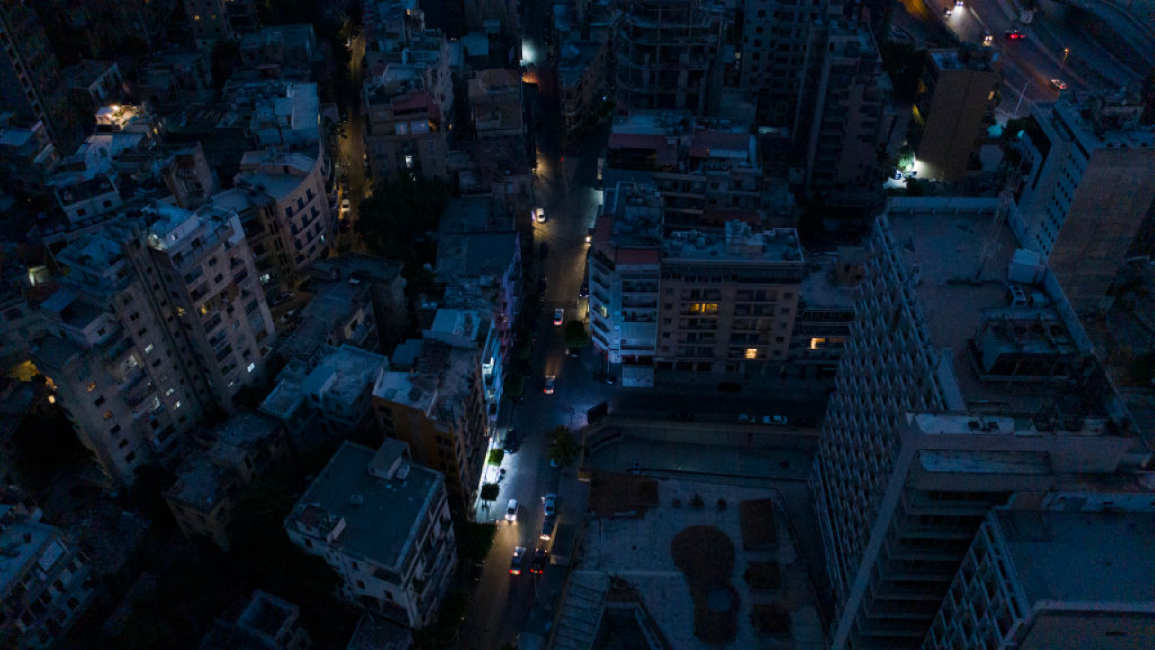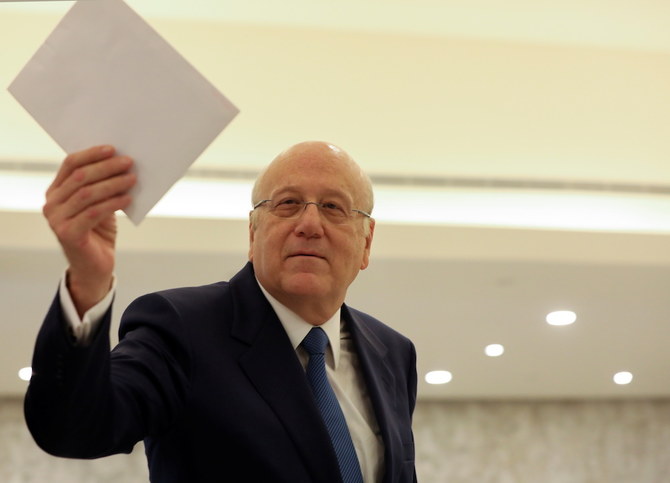
by english.alaraby.co.uk — Lebanese Prime Minister Najib Mikati said on Sunday that his new cabinet’s priorities are to mend ties with Arab nations and solve the country’s pressing issues, particularly the energy crisis. “Now is not the time for political (bickering), but rather the time to get to work to lift Lebanon from its crises, put a stop to the collapse, and speed up work on solving the electricity crisis and finding quick solutions to it,” Mikati said in comments to Almodon. Lebanon was plunged into an exacerbating energy crisis this year due to fuel shortages necessary for power plants and private generators, as the Lebanese Central Bank gradually lifts subsidies because of dwindling US dollar reserves. Mikati had previously said that the new government will be forced to lift subsidies completely on fuel, which could push the country further into crisis if no solutions are found immediately.
A 2009 agreement with Egypt recently brought back to light could see Lebanon import natural gas, as well as electricity from Jordan, to help solve the crisis. Electricity expenditure accounts to about half of Lebanon’s sovereign debt. Speaking to Almodon, Mikati preferred not to touch on sensitive political topics to avoid division in his new cabinet, but instead said he looked forward to cooperating with President Michel Aoun to achieve what was necessary. “This must start with a new governmental and political methodology, topped with restoring relations with all states, especially Arab countries. This is what should be focused on in the ministerial statement,” he said. Ties between Lebanon and Gulf states have been rattled in recent years due to repeated attacks on their leaders by Hezbollah head Hassan Nasrallah. Gulf states have accused the Shia paramilitary group of assisting other Iranian-backed militias, such as Yemen’s Houthis, in launching drone attacks on Saudi Arabia.
Mikati also insisted that no party held veto powers in the new cabinet, despite allegations that this was given to the president’s team and his Free Patriotic Movement party. “Since the first day I was assigned to form the government, I informed everyone that I cannot give a veto to any team or party. There were many attempts to obtain this (veto) but I succeeded in overcoming them,” he said, adding that he himself has more than two thirds of cabinet ministers based on harmony and coordination between him and the new ministers. Three-time premier and billionaire Mikati announced his cabinet line-up on Friday, 13 months since the last cabinet resigned in the wake of the massive Beirut blast which killed over 200 people. The newcomers include many technocrats, but each minister was endorsed by one or several of the factions that have dominated Lebanese politics since the 1975-1990 civil war. It comes at a time Lebanon is facing its worst ever economic and financial crisis.

By arabnews.com — DUBAI: Lebanese Prime Minister Najib Mikati told Al-Sharq on Friday that the four files at the top of his government’s agenda were “confronting the COVID-19 pandemic, the reconstruction of the Beirut port, general reforms and parliamentary elections.” In an exclusive interview, the new prime minister told Al-Sharq: “We have eight months of hard work to achieve what can be achieved.” Mikati said that “talks with the International Monetary Fund (IMF)” would be one of his government’s tasks. “We will start addressing international bodies and funds in order to be open once again to other countries after a break in the recent period,” he said.
Reconnecting with the “Arab entourage”
Asked about the first Arab figure Mikati would communicate with after the announcement of the formation of the new government, he said: “We will work to reconnect with our Arab entourage. I will contact everyone, especially the GCC countries, to stop the recession in Lebanon.” “We need quick actions and I will ask for the help of my brothers in the Arab and GCC countries. We are keen to coordinate and cooperate with all Arab countries and we cannot but have a close relationship with them.” Mikati added: “I am fully aware of the remarks of some Arab countries, but Lebanon can only be their safe country and I promise them that.”
Politicians’ responsibility
On the obstacles he faced in the formation of the government, Mikati said: “Whoever wishes to disrupt the government shall stay out of it.” “I assure that no party has the (blocking) third, whether it is persuasive or otherwise. I know the structure of my government very well and we will be working as one team.” Asked about his economic reform program, he said: “This plan is ready, however, I can only present it after the cabinet’s approval.” “We have a rescue plan and will work on achieving it. It includes eight essential clauses for reforms.” On the selection of the new minister of finance, Youssef Khalil, given that he is widely considered to be one of the architects of the controversial financial engineering program at the Lebanese central bank (Banque du Liban), Mikati said: “The minister of finance has the expertise in all financial matters. He will not be making decisions alone, but we fully trust him to make change.” Mikati said that “the real responsibility lies with politicians who did not undertake any reforms. They were bickering and blaming the central bank, thus BDL is not the only one responsible for the current crisis.”
Reforms take time
Mikati said that he would “work on stopping Lebanon’s free fall.” He said that his country “needs everything” and that “change in Lebanon might need time to yield results.” “We need to work seriously in order to fill the gap, following 13 months of political disruption,” he said, noting that “every Lebanese is well aware of the current crisis that requires solutions.” On International Monetary Fund aid, Mikati said: “We hope to make progress in talks with the IMF.” He pointed out the need to implement the fund’s conditions, which included “the liberalization of the exchange rate and stopping the lifting of subsidies.” Mikati said that he would “work on a satisfactory agreement with the IMF, provided that it is good for Lebanon.” “We will work on what can be rescued of Lebanon and solve the crises as soon as possible. I am not asking for a grace period of three months or 100 days, but I am asking to start working immediately in order to fix the living conditions in the country.” Mikati said that the next parliamentary elections would be held on time. “No one can object to the elections that must take place on time and without hesitation,” he said.



